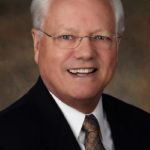Pablo Picasso once wrote, “Without great solitude, no serious work is possible.”
In chapter 5 of Essentialism: The Disciplined Pursuit of Less, Greg McKeown addresses the critical need to escape, and the many advantages of purposefully scheduling time wherein you are unavailable for anything, other than to think.
Do you openly coach, mentor, lead, and expect your team and your organization to value, regularly schedule, and spend quality time in isolation, doing nothing but uninterrupted thinking? Not isolation in order to avoid others or to avoid accountability. Isolation in order to purposefully have quality time without interruptions, to do some of their very best thinking and work.
Most leaders give lip service to the importance of quality, uninterrupted time to think. However, most of the people who report to those leaders, or who are in those leaders’ organization, would never want to be ‘caught’ sitting at a desk or elsewhere, purposely in isolation in order to think. When management walks by, most people scurry to appear busy. Busy doing anything but sitting in isolation in order to spend quality, uninterrupted time thinking.
McKeown correctly writes: “In order to have focus, we need to escape to focus.” He goes on to say:
“It seems obvious, but when did you last take time out of your busy day simply to sit and think? … I’m talking about deliberately setting aside distraction-free time in a distraction-free space to do absolutely nothing other than think.”
Many leaders say they are just too busy to carve out large chunks of time for thinking. What these leaders are saying is that they are too busy with less important priorities to take the time to schedule and do what is most critical and most impactful.
Even at the height of Microsoft’s explosive growth and success, Bill Gates scheduled an entire week, twice a year, to do nothing but read and think. To this day, Bill Gates continues to schedule weeks to do nothing but read and think. He credits much of his success to the discipline and the time he spends reading and thinking.
Jeff Weiner, CEO of LinkedIn, schedules up to two hours every day of blank space on his calendar. He sees that space as his most valuable productivity tool.
Sir Isaac Newton created space for intense thinking and concentration. The result? His thinking shaped scientific thinking for the next three centuries.
Thousands of the most successful people in the world, in every conceivable industry, purposefully and consistently schedule uninterrupted space and time for what they know is the highest ROI, the most impactful time of their day, week, or year.
What about you as a leader? Do you openly coach, mentor, lead, and expect your team and your organization to value, regularly schedule, and spend quality time in isolation, doing nothing but uninterrupted thinking? Do you practice what you preach?
 Copyright © 2014 by Dan Nielsen – www.dannielsen.com
Copyright © 2014 by Dan Nielsen – www.dannielsen.com
National Institute for Healthcare Leadership – www.nihcl.com
America’s Healthcare Leaders – www.americashealthcareleaders.com

Be the first to comment on "The Serious Work of Solitude"